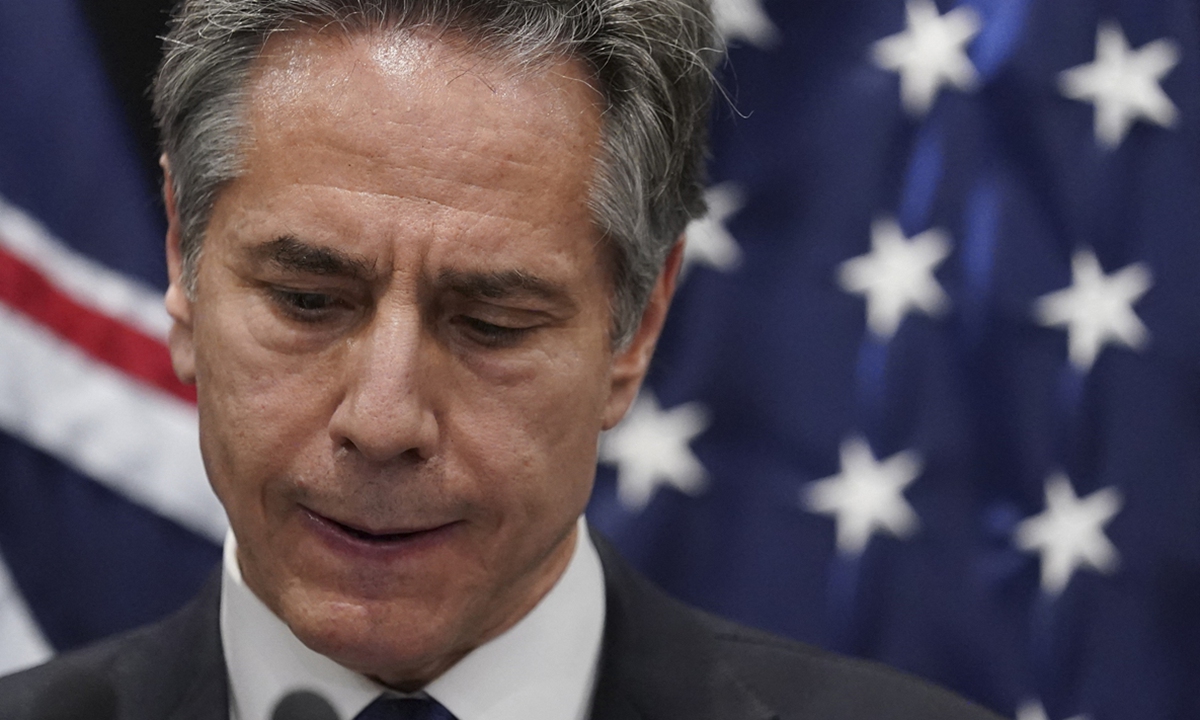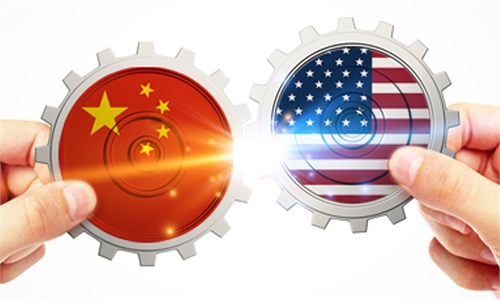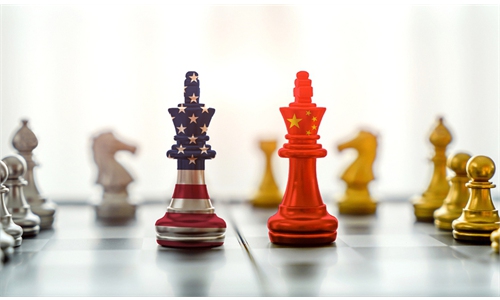
US Secretary of State Antony Blinken Photo: AFP
US Secretary of State Antony Blinken's ongoing China trip is a significant step toward rebooting US-China relations.
This is the first visit to China by a high-ranking member of President Joe Biden's cabinet. The visit will also have implications on whether the two heads of state can have a face-to-face meeting in the G20 summit in India in September.
Blinken postponed a trip to China due to the "balloon incident" earlier this year. China believes the Biden administration overreacted to the incident and sought to present a tougher stance toward China. US-China relations have also hit a freezing point. In particular, the lack of diplomatic communication has increased tensions between the US and China over issues such as the Taiwan question.
In recent months, the Biden administration has repeatedly called on China and the US to resume high-level dialogues. The US Department of State has also postponed human rights-related sanctions, export controls and other sensitive actions against China in an attempt to avoid even further strain on US-China relations.
Recently, high-level exchanges between China and the US have increased significantly. In May, US National Security Advisor Jake Sullivan met with China's top diplomat Wang Yi in Vienna, Austria. It is reported that CIA director William Burns also made a secret visit to China in May. All these reflected the White House's serious concern about the sharp deterioration of China-US relations.
The resumed communication between China and the US is driven by a variety of factors. From the US side, the Biden administration believes that responsibly managing US-China relations is in the interests of the US and a necessary part of the US strategy toward China.
The US side is highly concerned that the lack of communication between the US and China will lead to an accidental military conflict. With the ongoing Russia-Ukraine conflict dragging on, the Biden administration would be in a terrible situation if a military confrontation between the US and Chinese forces would occur in the Taiwan Straits or other regions. Biden has already announced his reelection bid in his 2024, and two simultaneous wars with both China and Russia could cause American voters to abandon the Democratic Party.
In addition, the US economic recovery still requires cooperation with China. The massive government spending pushed by the Biden administration will inevitably have side effects. The US Consumer Price Index (CPI) rose again in May, indicating that its inflationary pressures remain high. A large number of US companies and businesses have expressed their opposition to the Office of the United States Trade Representative about the punitive tariffs imposed on Chinese goods. US Treasury Secretary Janet Yellen also made clear that the consequences of "decoupling" from China would be "disastrous."
US allies are also pressing Washington to ease tensions with Beijing. In April, French President Emmanuel Macron and President of the European Commission Ursula von der Leyen visited China together. Provocations by US politicians on the Taiwan question are worrying Europe. Macron expressed the attitude of not being a US "vassal" over Taiwan. Von der Leyen stressed that "it is neither viable - nor in Europe's interest - to decouple from China."
The Biden administration has tried to reassure its allies, with Sullivan and Yellen borrowing the word "de-risking" to emphasize that the US side has no intention of "decoupling" from China. However, the inconsistency between words and deeds on the US side has seriously damaged mutual trust between China and the US.
In China's view, many of the commitments made by the US on relations with China have not been fulfilled, and dialogue with the US has yielded no positive results. The US constantly challenges China's red lines on the Taiwan question. Since Biden took office, the US government has added a vast number of Chinese companies and research institutions to its Entity List, and the number is still growing.
When we take a look at the US Congress, the future of US-China relations seems to be more pessimistic. The battle between Republicans and Democrats has victimized the US-China relationship. Many lawmakers lack a clear understanding of the complexity of the Taiwan question.
Former US secretary of state Henry Kissinger, who personally experienced World War II and the Cold War, warned before Blinken's visit to China that both the US and China were "at the top of a precipice" and that military conflict could break out in the Taiwan Straits.
There is no real winner in a war between two superpowers, and as the top US diplomat, Blinken has a responsibility to act with the utmost sincerity and practical moves to avoid the worst-case scenario in US-China relations.
The author is a professor at the Institute of International Studies at Fudan University and an adjunct fellow at the Chongyang Institute for Financial Studies at Renmin University of China. opinion@globaltimes.com.cn



